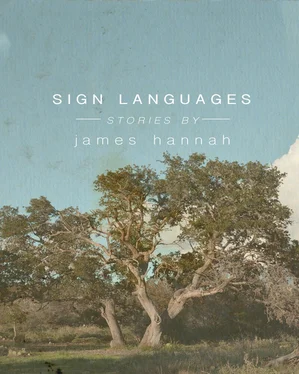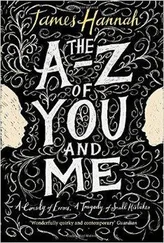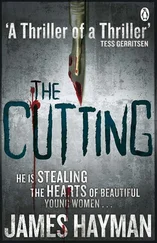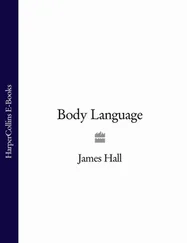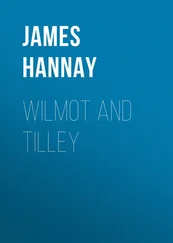James Hannah - Sign Languages
Здесь есть возможность читать онлайн «James Hannah - Sign Languages» весь текст электронной книги совершенно бесплатно (целиком полную версию без сокращений). В некоторых случаях можно слушать аудио, скачать через торрент в формате fb2 и присутствует краткое содержание. Год выпуска: 2015, Издательство: Dzanc Books, Жанр: Современная проза, на английском языке. Описание произведения, (предисловие) а так же отзывы посетителей доступны на портале библиотеки ЛибКат.
- Название:Sign Languages
- Автор:
- Издательство:Dzanc Books
- Жанр:
- Год:2015
- ISBN:нет данных
- Рейтинг книги:5 / 5. Голосов: 1
-
Избранное:Добавить в избранное
- Отзывы:
-
Ваша оценка:
- 100
- 1
- 2
- 3
- 4
- 5
Sign Languages: краткое содержание, описание и аннотация
Предлагаем к чтению аннотацию, описание, краткое содержание или предисловие (зависит от того, что написал сам автор книги «Sign Languages»). Если вы не нашли необходимую информацию о книге — напишите в комментариях, мы постараемся отыскать её.
Sign Languages — читать онлайн бесплатно полную книгу (весь текст) целиком
Ниже представлен текст книги, разбитый по страницам. Система сохранения места последней прочитанной страницы, позволяет с удобством читать онлайн бесплатно книгу «Sign Languages», без необходимости каждый раз заново искать на чём Вы остановились. Поставьте закладку, и сможете в любой момент перейти на страницу, на которой закончили чтение.
Интервал:
Закладка:
White angels if angels, Mothermae. Angels with parasols and fishing tackle.
I turned around to glean the mess of rubbish, teasing out the tight bundle until I screamed, yelled, heard my voice for the first time in days, weeks. Louder than I’ve ever heard it before.
I beat it up the bank, heard it coming up after me. “Oh,” it kept saying. “Oh, oh, oh,” like great gusts of wind.
Below me the fingernails painted red, chipped, the hand crooked, pill bugs all over it, up against the grate, bundled in the tight dry weeds.
I held the sign; we swayed together. The sun right overhead for a long time. I thought of Bruno Hauptman, saw the picture of the baby they found. Stuffed up in a culvert like a parcel of things you ought to want to look at.
Now I laugh. Then I laughed too, later. “You’re getting old, you goddamn sure are,” I’d said. I begin to sort through this month’s deposit. But there’s been little rain to bring stuff down. There’s nothing here, but I’m not disappointed. It happens a lot during the dead of summer. Once there was a whole book, its pages barely faded. The Waitress Murders . I still read it once in a while. Catalogs. Huge pieces of cloth that come in handy. I think maybe the bicycle basket came from here.
Now the heavy plaster hand is on the windowsill. I put a candle in its palm. It was probably from one of those store dummies. I love to remember that gray-headed man scrambling up the bank yelling. And after I’d had the laugh, I wondered if my voice had carried down the creek’s channel to the people in the canoe. Had they said, “Shhh… listen… what’s that? Listen!”
“My God, it’s a person.”
There’s a chance all that didn’t happen the same day, the day I discovered the grate. But I think it’s so.
Gifts from God, Mothermae? Sometimes there are vague and distant noises. The rumble of thunder, the hiss of snakes from out of the mouth of the pipe. But it’s not Baby Jesus turning his head this way, is it? Most likely it’s a trick of the wind, or the pipe travels under a road, opens near some houses or a factory.
Coming out of the cold into the spring is the best time. I’m already thinking about planting some peppers. When I want to talk I’ll go into town to the priests. I’ll ask them about Mary, say I’ve read those brochures and they’re interesting. Get the two of them really going. Or I’ll take the shovel and walk down and dig up the asphalt patch. I’ve done that before. And when they show up in their yellow dump truck, I’ll come the long way out of the woods without anything in my hair or beard. Sit and drink Pepsis with the black boys stripped to the waist and shining. They think I’m a hobo. They ask me questions about my travels that make the white foreman laugh and shake his head. I answer them as best I can.
FRIENDS OF BECCARI
August 3rd
Still on the banks of the Trinity
David Fisher
The Hotel Charybdis
Taormina, Sicily
My dearest Dave,
I’m sorry I haven’t answered your last two letters, but much has happened the last six weeks. How are you and Marta? Here all seems well enough (only I’m suffering from the last month of summer heat). B. is relieved she’s finished here with no summer session and, at Harper State next semester, only two courses. The children are fine. As usual, J. is still full of music and song; L. suffers from the imminent departure. She spends all day outside at play.
I wonder how the book on D. M. Thomas is coming? Only last night I decided to open the Old Bushmill’s single malt, sit on the deck (next to the table crowded with ailing and dead bonsai — you were right, as usual, I don’t spend the necessary time with the little bastards. And now, with the move in a couple of weeks, maybe it’s best they all shed their leaves), and think of you. By the time you do get back — via Bolzano, Lake Como, etc. — we’ll be settled in and the new place, new semester, new town (smaller but cheaper, I hope) will surround us.
Anyway, I sat on the deck and drank, missed our conversations, and realized I couldn’t sit, drink, remain silent about what’s happened though I don’t know what to make of it all yet; though I think, in many ways, it answers a hundred questions we’ve asked each other over the last four years since you drove in from Phillips College and hated all the right things with a fine sense of humor.
I tried my best to drop it last month; I hoped it’d be smothered by the impending cross-country move. But somehow that only tantalizes it, provokes it. And your absence has me hulking through the department, unable to talk, everything quickly becoming even more foreign than it was the first time I saw it all. I know you’ll understand.
Of course what our lovely writers do is fascinating, you know. Absolutely so. But it’s not completely right because it does nothing to explain what I saw in Tegucigalpa. When we taught Poe, Dostoyevsky, Calvino, many, many others, we emphasized their distortions, bulging seams, oddities of time and place, repeated movements, sudden illnesses as exciting ways into the same old reality, some new way of exploring the same old human situations. They all just teased reality through a bit of illusion. Maybe the protagonist was insane and his madness gave him new insight or a frighteningly clear perspective.
Though the character is a murderer like Mathias in The Voyeur , he remains a man, and the world he distorts into repeating patterns found on beaches, tablecloths, suitcase linings is still an island the reader takes as real with sand, salt breezes, sea gulls. All these invented perspectives ways of seeing the same old things with vitality. Didn’t we tantalize our students with the insights and outlooks of deranged men, ill men who reinterpreted the ordinary, the static, while we talked on and on in comfortable classrooms with hissing radiators and flaking paint?
It’s method we admired, isn’t it? New ways of seeing old dilemmas. But the world was always the world around them — a world of bridges over rivers, whores with tuberculosis — not something free-floating and amorphous with mysterious, unlimited possibilities. We certainly took comfort in that. In that, and in knowing, beyond anything else, that men sulking in dark cellars, writhing in nightmares, writing fantastic books were always men. Men as we understood them — even in madness, even as murderers.
We cagily with great ease of mind, told our classes there were only a dozen themes available, all the rest is brilliant variation. We were smug, weren’t we? But none of this explains my brother and Odoardo Beccari.
I’m sure you remember how often I’ve spoken of my brother. I know, when I wrote you last, I mentioned how he’d taken off on an old-style world tour in the spring. His was the biggest success of the Clarke family. Where I never “quite got through with school,” as mother quips, his was a meteoric rise. After high school and the Navy (anything, he said, to escape the late ‘50s) he finished college at UT, then went into the state legislature while in law school, etc., etc. Now, at fifty, he’s a hell of a criminal defense lawyer in Patroon. Remember we once talked about the Hopkins case — the papers termed him “The Beast”—and how my brother turned down the offer to defend? But those are the sorts of cases he’s taken since losing his bid for state prosecutor general back in ‘74.
For years he had a tremendous impact on me. He was the first person in our family to go to college, almost assuring I would, making my own children’s education a certainty. He’d get me to memorize and recite Kipling poems when I was six or seven and he was home on furlough. We love one another in the typical Clarke fashion — nothing demonstrable at all. Tight-lipped, hands in pockets, expectations present but unspoken.
Читать дальшеИнтервал:
Закладка:
Похожие книги на «Sign Languages»
Представляем Вашему вниманию похожие книги на «Sign Languages» списком для выбора. Мы отобрали схожую по названию и смыслу литературу в надежде предоставить читателям больше вариантов отыскать новые, интересные, ещё непрочитанные произведения.
Обсуждение, отзывы о книге «Sign Languages» и просто собственные мнения читателей. Оставьте ваши комментарии, напишите, что Вы думаете о произведении, его смысле или главных героях. Укажите что конкретно понравилось, а что нет, и почему Вы так считаете.
